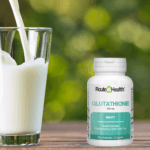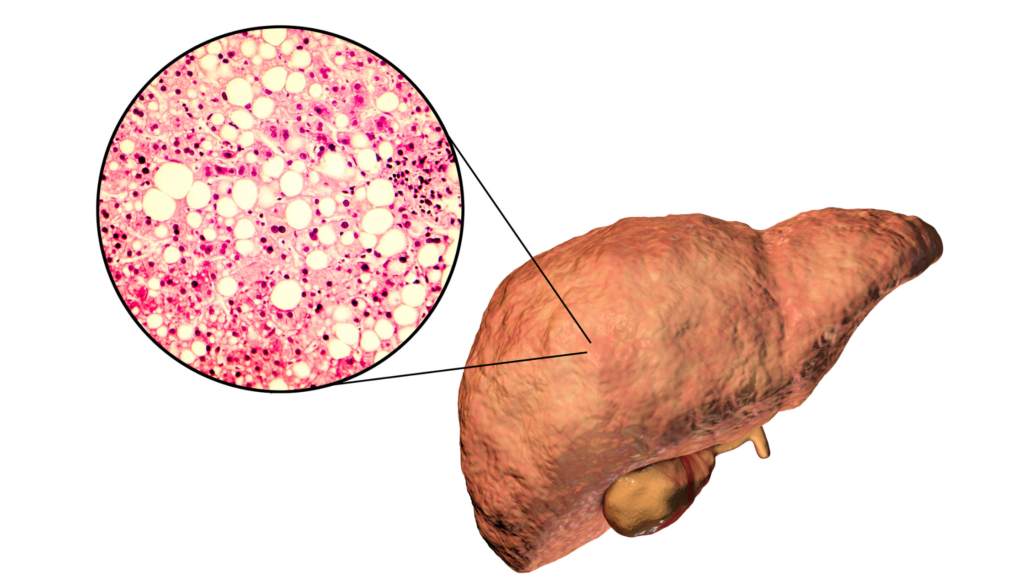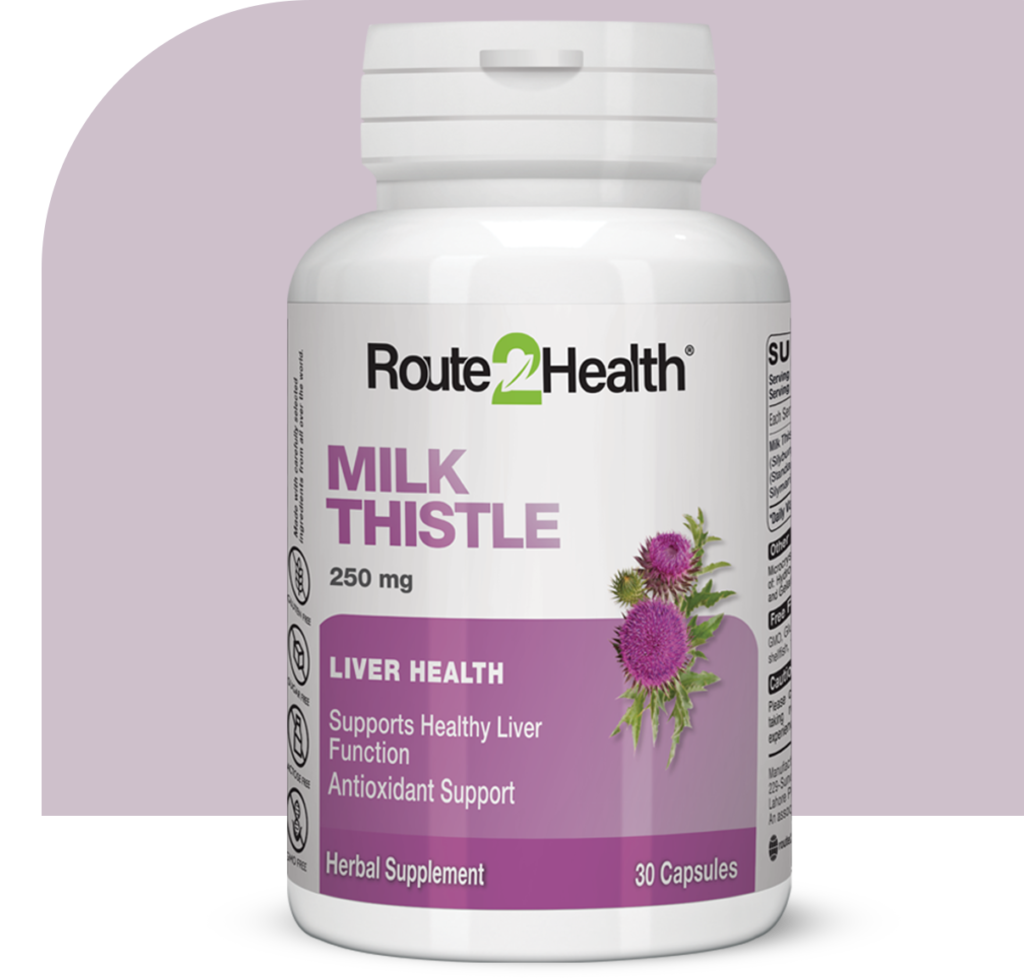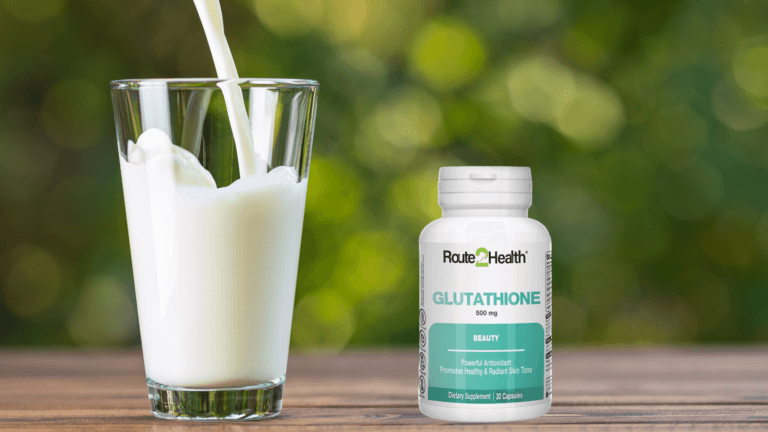
Berdi
urinary Track Health
What comes to your mind when you think of a healthy liver supplement or ingredient? Those green drinks and capsules, right? But one thing that often fails to get recognition for it due role in improving liver health is Milk Thistle. Milk thistle is the ultimate natural ingredient that plays the most effective role in helping your liver function optimally and play its due role.
Milk Thistle, known scientifically as Silybum marianum, is a flowering herb that has been revered for centuries for its potential to promote liver health and aid in the treatment of various liver-related ailments.
In this article, we will explore the most prominent benefits of milk thistle for the liver.
Before exploring the benefits of milk thistle for the liver, you need to understand what your liver actually does. The liver, a multifunctional organ, is crucial in maintaining homeostasis within the human body. Its functions are diverse and essential for overall health. Research indicates that the liver is the primary site for numerous metabolic processes, detoxification, and the synthesis of vital proteins.
One of the pivotal roles of the liver is its involvement in metabolic functions. According to research, the liver is a key organ in regulating glucose metabolism, maintaining blood glucose levels within a narrow range. Through processes like gluconeogenesis and glycogenolysis, the liver helps manage blood sugar levels, ensuring a steady energy supply for the body.
Detoxification is another critical function of the liver. The liver filters and processes blood, removing toxins and harmful substances. The liver achieves detoxification through various enzymatic processes that convert toxins into water-soluble compounds, facilitating their excretion from the body.
The synthesis of proteins is yet another essential role of the liver. The liver produces proteins crucial for blood clotting, immune system function, and maintaining fluid balance. Moreover, the liver is involved in lipid metabolism, including the synthesis of cholesterol and triglycerides.
In conclusion, the liver is a vital organ with diverse functions ranging from metabolic regulation to detoxification and protein synthesis. These functions are imperative for maintaining the body’s equilibrium and overall well-being.

Milk Thistle’s use as a medicinal herb can be traced back thousands of years. The ancient Greeks were among the first to document its therapeutic properties, recognising its ability to support liver function. Throughout history, various cultures have embraced Milk Thistle for its purported healing effects on the liver, viewing it as a reliable remedy for liver disorders and ailments.
At the heart of Milk Thistle’s liver-protective prowess lies a group of flavonoids collectively known as silymarin. Silymarin is the star component responsible for many of the benefits of milk thistle for the liver. Comprising silybin, silydianin, and silychristin, silymarin is a powerful antioxidant and anti-inflammatory agent, safeguarding the liver from damage caused by free radicals and other harmful substances.
Now that you know how your liver works, it’s time you explore the benefits of milk thistle for the liver.
The liver plays a central role in detoxifying the body by filtering and processing toxins. Milk Thistle aids in this essential function by promoting the regeneration of liver cells and enhancing their ability to detoxify harmful substances. Research suggests that silymarin exerts its detoxifying effects by enhancing the liver’s capacity to process and eliminate toxins. The herb’s detoxification support is particularly beneficial for individuals exposed to environmental toxins, and pollutants, or those with a history of alcohol or drug use.
The liver, being a vital organ, is constantly exposed to oxidative stress due to its role in detoxification and metabolic processes. Milk Thistle’s silymarin content functions as a potent antioxidant, neutralising free radicals and reducing oxidative stress. By doing so, it helps protect liver cells from damage and supports their overall health and longevity.
According to a study by Surai, silymarin’s molecular structure enables it to neutralise reactive oxygen species, preventing cellular damage. The antioxidant effects of silymarin contribute to its protective role in the liver, shielding hepatocytes from oxidative damage during detoxification processes.
One of the most remarkable aspects of Milk Thistle is its capacity to stimulate liver regeneration. The liver is unique among organs in its ability to regenerate damaged tissue, and Milk Thistle enhances this natural process. Silymarin promotes the production of new, healthy liver cells, aiding in the recovery from liver damage caused by various factors such as alcohol consumption, hepatitis, or fatty liver disease.

Chronic inflammation is a common precursor to many liver diseases. Milk Thistle, specifically its active compound silymarin, demonstrates anti-inflammatory properties that contribute to managing liver inflammation. Research suggests that silymarin acts as a potent anti-inflammatory agent by inhibiting pro-inflammatory cytokines and modulating immune responses in the liver. The study emphasizes silymarin’s ability to suppress inflammatory pathways, reducing liver inflammation associated with various liver disorders. These anti-inflammatory effects are crucial for mitigating conditions such as non-alcoholic fatty liver disease (NAFLD) or hepatitis.
In conclusion, Milk Thistle, through the anti-inflammatory actions of silymarin, emerges as a promising natural approach for supporting liver health and addressing inflammation.
Non-alcoholic fatty liver disease (NAFLD) is a prevalent condition characterized by the accumulation of fat in the liver. Left untreated, it can progress to more severe forms of liver disease. Milk Thistle has shown promise in managing NAFLD by reducing inflammation, promoting fat metabolism, and preventing the progression of fatty liver to more advanced stages.

Hepatitis, whether caused by viral infections or other factors, can lead to severe liver damage if not addressed promptly. Milk Thistle has been studied for its potential to support liver function in individuals with hepatitis. Research published in the Proceedings of the National Academy of Sciences indicates that silymarin exhibits hepatoprotective properties, playing a role in ameliorating liver damage associated with hepatitis. While it’s not a cure for viral hepatitis, the herb’s antioxidant and anti-inflammatory properties may aid in mitigating liver damage and improving overall liver health.
Excessive alcohol consumption can have detrimental effects on the liver, ranging from fatty liver disease to more severe conditions like alcoholic hepatitis and cirrhosis. Milk Thistle has been explored as a complementary approach to protecting the liver from alcohol-induced damage. The antioxidant and anti-inflammatory effects of silymarin may help mitigate the harmful impact of alcohol on the liver.
Milk Thistle stands as a testament to the healing power of nature, offering a multitude of benefits for liver health. From its historical use to the modern scientific exploration of its mechanisms, this herb has proven to be a valuable ally in maintaining a healthy liver. Whether used preventatively or as part of a therapeutic regimen, Milk Thistle, with its active ingredient silymarin, has the potential to play a pivotal role in promoting liver function, detoxification, and overall well-being.
You can reap all the benefits of Milk Thistle by taking Route2Health’s Milk Thistle Supplement.
Milk thistle supports liver function by aiding in detoxification, reducing inflammation, and promoting the regeneration of liver cells.
Milk thistle supplements can be effective, but it’s essential to follow recommended dosages. Consult a healthcare professional for personalised guidance.
While it may offer protective effects, milk thistle is not a substitute for a healthy lifestyle. It can be part of a comprehensive approach to liver health.
In general, milk thistle is well-tolerated, but potential side effects and interactions may occur. Consult with a healthcare provider, especially if you have pre-existing conditions or are taking medications.
Pregnant or breastfeeding women and individuals with allergies to plants in the Asteraceae family should avoid milk thistle. Consult a healthcare professional for personalised advice based on your health status.











©2023 Route2Health®️
NTN: 2229383
AN ASSOCIATED COMPANY OF HIGHNOON LABORATORIES
STRN: 0301999937728

WhatsApp us
